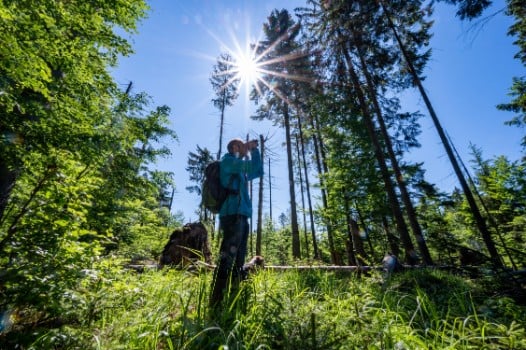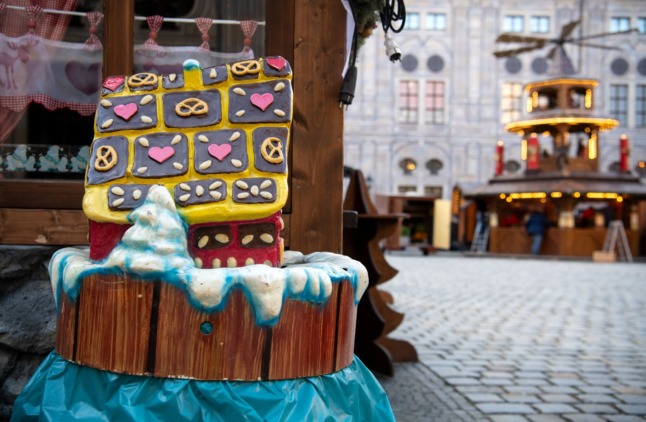The bark-gnawing beetle hadn't been seen in the Bavarian Forest for 113 years. It was considered extinct there. Then, in autumn 2019, the biologist Jörg Müller discovered a specimen of the small insect on a spruce stump.
A real relic of pre-cultivated forests, the bark-gnawing beetle needs plenty of dead wood and tree moss if it is to survive.
READ ALSO: Eight beautiful Bavarian day trips you can't miss
But, thanks to a philosophy of letting nature do its thing, there is enough dead wood and moss in the Bavarian Forest national park to go around.
The oldest national park in Germany, the Bavarian Forest Park was founded 50 years ago this week.
Its founding goal has been achieved, says director Franz Leibl. The reserve has increasingly developed into something akin to an ancient forest.
Around 11,000 animal, fungal and plant species have been identified in the reserve – including 16 different species of forest beetle, which are reliant on forest structures undisturbed by humans.
Bats, red deer, lynx and beavers also feel at home in the reserve – as does the dreaded spruce bark beetle. The bark beetle species poses a particular challenge to the National Park as well as to private and commercial forest owners.
After a massive infestation of bark beetles in the 1990s, the forest has now recovered.
 Photo: AFP
Photo: AFP
Luckily the destruction left by the fearsome beetle also serves a purpose – the dead trees now serve as a habitat for rare species that depend on dead wood.
During a walk through the forest, Jörg Müller points out tree stumps where fungi have spread.
“It takes about three weeks for the bark beetle to kill a tree,” he explains. “Then the mushrooms come.”
In nature there are always winners and losers, Müller adds.
In the national park, 200 species of mushroom have benefited from deadwood. The barbastelle bat was also endangered until the bark beetle “created a great habitat for it.”
At the edges of the national park, spruces infested by the bark beetle have been removed to prevent it from spreading to adjacent forests.
The bark beetle problem is ultimately man-made, Müller says. Spruces are popular in industrial forestry. By growing spruce forests, humans built an ideal home for the insect.
READ ALSO: Germany's climate-stressed forests face 'catastrophe' as bugs attack
“The table was set, and then the big feast began,” Müller says.
The National Park can also boast a completely different kind of resettlement: the beaver has discovered the Bavarian Forest and 25 of the protected animals now live in the national park.
The corona pandemic has put 50th anniversary celebrations on hold. However, Leibl promises that this will be made up for next year.
An expansion of the national park is under discussion as a form of birthday gift. Around 600 hectares of state forest on the border of the Czech national park Sumava could be assigned to the national park.
The expansion would create the largest forested national park in the country.



 Please whitelist us to continue reading.
Please whitelist us to continue reading.
Member comments